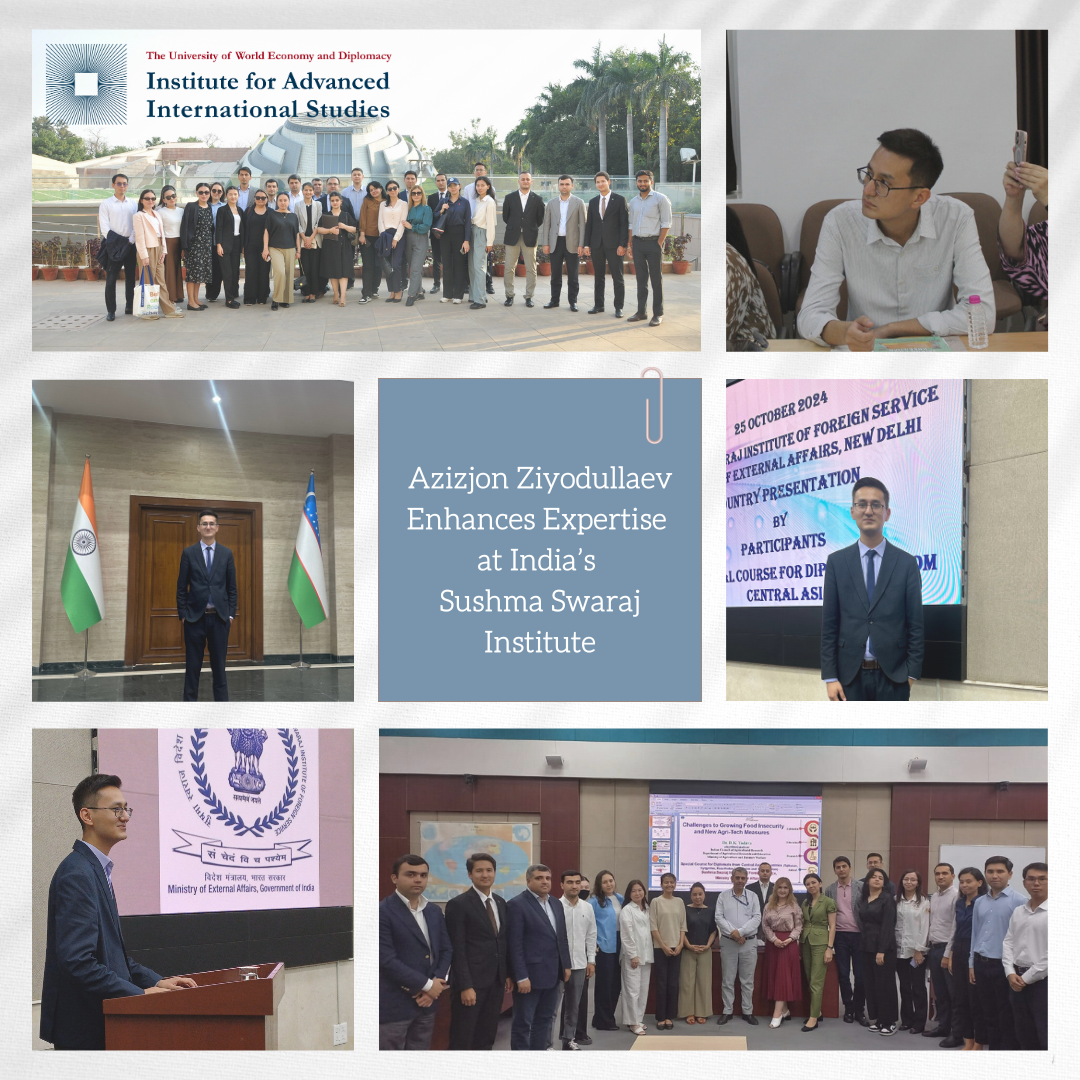
From 14 to 26 October, Azizjon Ziyodullaev, Research Fellow at the Centre for Afghanistan and South Asian Studies, attended an exclusive training course at the Sushma Swaraj Institute of Foreign Affairs, New Delhi. This annual programme for Central Asian diplomats offered in-depth insights into India’s expanding diplomatic strategies, technological advancements, and its multifaceted relations with Central Asia.
The course commenced with an inaugural address by Dr Bhushan Mehar and Dr Sam Haq, setting an encouraging tone for the diplomats representing Central Asian nations. Key sessions included an address by Mr Charanjit Singh, who analysed the historical and economic ties between India and Central Asia. Mr Singh highlighted India’s investments in regional development, including the establishment of an IT park in Uzbekistan, and examined vital trade corridors like the North-South Transport Corridor and strategic port links through Bandar Abbas and Chabahar. His analysis underscored the challenges in strengthening these ties, such as limited direct access and the impact of US sanctions on Iran.
Ambassador Raj Kumar Shrivastava presented India’s “One World, One Family” diplomatic philosophy, explaining how it shapes India’s commitment to partnerships over alliances. He highlighted the nation’s ambitious digitalisation achievements, which include biometric data registration for 97% of the population and advancements in AI technology designed to widen access to education. This vision of a “world family” resonated as a core element of India’s foreign policy outreach.
Ambassador Sanjay Bhattacharya explored new trends in international diplomacy, focusing on the influence of disruptive technologies, the role of non-state actors, and emerging security challenges. He underscored India’s pioneering role in digital diplomacy and its goal of fostering a multipolar world order. In a separate session, Dr Ajay Lele provided an in-depth overview of India’s space initiatives, covering developments since the 1960s, space debris concerns, and advances in anti-satellite technology, exemplified by the 2019 Shakti mission.
In addition to academic sessions, participants explored India’s cultural and technological landscape through visits to major sites. Highlights included the Prime Minister’s Museum, which chronicled India’s post-independence political journey, and a tour of Maruti Suzuki’s state-of-the-art manufacturing plant. Delegates also visited the Central Election Commission and the Federation of Indian Chambers of Commerce & Industry, gaining insights into India’s governance, business practices, and manufacturing capabilities.
The course concluded with presentations from each delegation on their respective countries, culminating in a formal ceremony where Mr Ziyodullaev was awarded a completion certificate by Ambassador Shrivastava. The event featured an exchange of national souvenirs, showcasing Uzbekistan’s cultural heritage, and further solidified diplomatic goodwill between India and Central Asia.
Thus, by engaging with India’s strategic policies, technological achievements, and cultural richness, participants gained crucial insights into India’s approach to global partnerships and regional cooperation. The programme’s closing exchanges and formal acknowledgments underscored the shared commitment to strengthening Central Asian-Indian relations, paving the way for future collaborative ventures in trade, technology, and diplomacy.